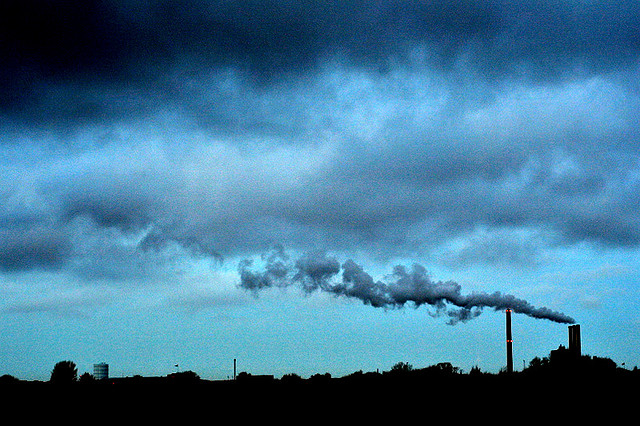En Route to Paris
December of 2015 marks a pivotal month in the history of climate change as the United Nations Framework Convention on Climate Change (COP 21) represents an opportunity to alter our trajectory.Governments, sustainability professionals, and corporate executives from around the world will assemble in Paris, seeking to establish post-2020 global objectives for reduction of greenhouse gas emissions. The conference will take place from November 30th - December 11th.Such negotiations come at an opportune time, as climate change has become ever-present, and carbon dioxide emissions are intensifying at an alarming pace.But the assembly in Paris is beset with uncertainty. The Path to Paris:"COP 21" is short form for the 21st gathering of the Conference of the Parties. For decades, governments have convened on climate change approximately once a year, but to no avail. Futile attempts have been made to negotiate best practices in reduction of greenhouse gas emissions.Greenbiz comments on the progress.
The Path to Paris:"COP 21" is short form for the 21st gathering of the Conference of the Parties. For decades, governments have convened on climate change approximately once a year, but to no avail. Futile attempts have been made to negotiate best practices in reduction of greenhouse gas emissions.Greenbiz comments on the progress.
If progress seems slow, consider that these negotiations are among the last of their kind. World trade negotiations aimed at removing trade barriers among developed and developing countries, known as the “Doha round,” collapsed in 2008. Only a handful of global treaties have been negotiated in the past four decades, with most of these covering narrow issues and lacking strong incentives for countries to comply. Climate change, by contrast, is possibly the most intractable problem of our times, and solving it will require an unprecedented upheaval of the world economy to rebalance away from the fossil fuels which have been the engine of growth for more than a century and a half.
The last Conference of the Parties (COP 20) was held in Lima, Peru at which time country ambassadors discussed 2020 goals. COP 20 was directly responsible for the monumental agreement between the United States and China that took place in November of 2014.The agreement represented China's first-ever commitment to cap greenhouse gas emissions. Prior to November of 2014, the nation had solely asserted commitment to reduce the rate of growth of its emissions. China not only agreed to cap output of carbon dioxide by 2030, but also to increase its use of zero-emission energy by 20%. The agreement represented a steep commitment on behalf of the United States, as President Barrack Obama announced a vow to cut emissions by 26-28% from 2005 baseline levels by 2025 - twice the pace of reduction the U.S. had agreed to from 2005 - 2020. These commitments trail an impressive pledge from the European Union (EU) to reduce greenhouse gas emissions from 1990 levels by 40% before 2030.The Paris Assembly:Both developed and developing countries must step up to bat in Paris. Absolute reductions are expected from industrialized nations, while relative reductions and/or curtailments are expected from the less-wealthy emerging nations.Post-2020 targets must be established.Why post-2020? Because many nations have already declared varying commitments to reduce emissions through the year 2020, established at the 2009 gathering in Copenhagen - a conference followed with such turmoil and chaos that the 2020 vows became blurry: valid, but not legally binding.If this is merely one of twenty-one COP gatherings, why is the Paris Assembly so important?We have reached unprecedented levels of greenhouse gas emissions.Governments have long disagreed over which actions should be taken, and by whom. Responsibility is a word that has been tossed around aimlessly. In 1990, the IPCC published a scientific assessment warning the world to take climate change seriously. Two years later, all UN countries signed an agreement to "prevent dangerous anthropogenic interference with Earth's climate system", without delineating any further specifics. In 1997, an international emissions reduction agreement known as the Kyoto Protocol was established - only to meet opposition from the United States, refusing to ratify because emissions targets were not imposed on the developing world.Years of inertia ensued, until the aforementioned 2009 conference in Copenhagen, which proved just how delicate the negotiations had become.
We are seeing remarkable momentum building toward a historic conference in Paris in the closing days of 2015, by the end of which we will either have a new international agreement on cutting greenhouse gas emissions, or we will have seen the last of truly global efforts to strike a deal on saving our planet. - Greenbiz.
Experts in both government and sustainability are deeming the Paris Assembly as either the ultimate solution or the last resort.If there is no succinct outcome, the world may lose faith in the United Nations' ability to ever coerce nations to reach global agreement to alleviate the climate change that is inflicting our planet.147 days remain.
Featured Photograph by Tom Bricker.

